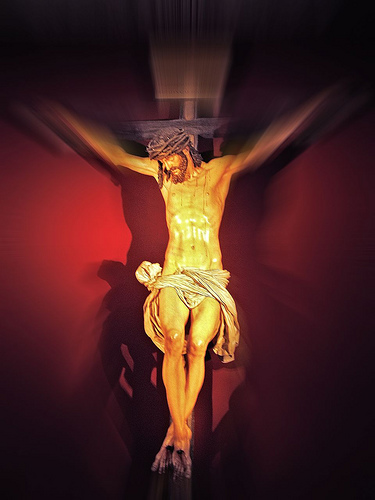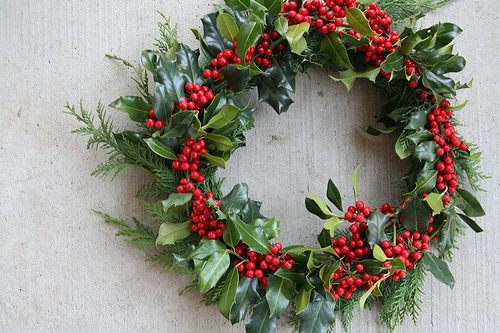Deck the Halls with Boughs of Holly...

Holly and Christmastime have gone hand and hand for
centuries. Long before the birth of Christianity, Pagans
decorated with evergreens. During Roman times, evergreens,
especially Holly, were adopted by Christians as Christmas
decorations. Evergreens were seen as symbols of everlasting
life and Jesus Christ’s death on the cross. The spiny leaves
and red berries symbolized a crown of thorns and drops of
blood. Other folklore even identifies holly wood as the wood
used to build the cross.
Figure 1: Holly has been a symbol of the sacrifice of Jesus
Christ for centuries.

Figure 2: Holly is used to make beautiful Christmas
decorations.
Because English Holly was native to Europe, when Europeans came to America they
continued the tradition with American Holly (Ilex
opaca). During the 20th century Holly became so popular at
Christmastime that private landscapes and forests experienced numerous cases of
theft. Today, Holly still plays an important part in Christmas celebrations. Its
name is heard in countless Christmas songs, its branches are used to make
beautiful decorations, and its strong symbolism still holds true.
English Holly makes its musical debut in a number of
popular Christmas tunes including:
1)
The Holly and the Ivy (learn more about
English Ivy)
2) Its Beginning to Look A Lot like Christmas
3) Have a Holly, Jolly Christmas
4) Deck the Halls (with Boughs of Holly)
5) Rockin’ Around the Christmas Tree
6)
Mistletoe and Holly (learn more about
European Mistletoe)
7)
Pine Cones and Holly Berries
More interesting facts...
|